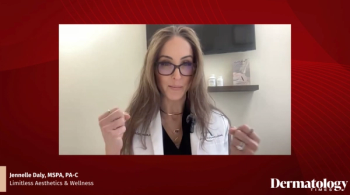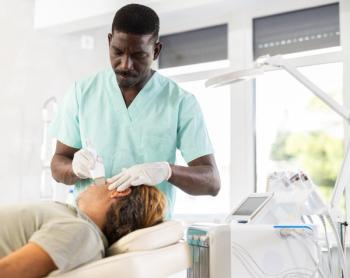
The Latest in Off-Label Use of Medications
At the SDPA 2022 Annual Summer Dermatology Conference, a session on the correct use of off-label prescribing to dermatological patients.
Stephen Tyring, MD, medical director, Dermatological Association of Texas and the Center for Clinical Studies, clinical professor, the Departments of Dermatology, Microbiology/Molecular Genetics, and Internal Medicine (Division of Infectious Diseases) at the McGovern School of Medicine at the University of Texas Health Sciences Center, Houston, launched his session on the off-label use of medications at the 2022 SDPA Annual Summer Conference with a recent example of the wrong off-label use of medication: hydroxychloroquine.
The drug, which is indicated for use for malaria, lupus, and rheumatoid arthritis, was used early in the COVID-19 pandemic, but provided no benefit for the virus and in fact, caused adverse events, including ocular, hematologic, and allergic. His message? Proceed with caution. “Off-label use can be the wrong route, especially at the wrong dosage and for the wrong age group,” Tyring emphasized.
Antibiotics, Tyring noted, are common in off-label use, used by almost every branch of medicine. In dermatology, they have been used to overtreat acne or rosacea. Drugs such as oral erythromycin, clindamycin, penicillin, and others have frequently been used off-label for the treatment of acne.
With antibiotics in particular, Tyring reminds the audience, “even FDA-approved antibiotics can lead to major problems if not used appropriately,” and, considering antibiotic resistance is such a current concern, this is a crucial thing to consider. Antimicrobial resistance is a public health concern, with the continued rise in resistance projected to kill 10,000,000 people annually by 2050.
Tyring expanded on the history of antimicrobial resistance, noting the emergence and the mechanics of resistance, as well as highlighting current emerging bacterial diseases, such as ticks (both infectious and noninfectious) and rickettsial diseases, as well as reemerging infectious diseases (MRSA,and treponema pallidum).
Overcoming antimicrobial resistance is crucial, Tyring says, with factors such as biofilms and the microbiome; phytocompounds now being further investigated; and new drug delivery systems being tested, including those that use nanoparticles.
The number one most effective response to antimicrobial overuse, says Tyring, is vaccines. “Vaccines decrease the need of treating infections,” which contribute to stemming or eradicating community infectious diseases.
The sobering news is that dermatologists prescribe more antibiotics than any other specialty, using them to treat a wide variety of skin conditions, but there are responsible ways to do so.
Tyring reminded providers to always use directed therapy for the appropriate microbe, adjust drug dosages to an effective level, prescribe judiciously, and provide education on antibiotic use to your patients.
Tyring then turned to popular retinoid use, such as acitretin (for pustular and plaque psoriasis), isotretinoin (for acne), and bexarotene (for cutaneous T-cell lymphoma). Off-label uses of these medications include rosacea, Darier’s disease, lichen planus, and chronic hand eczema.
With topical retinoid use, adverse effects can include irritation, erythema, peeling, burning, and pruritus.
Tyring also shared off-label uses of dupilumab for autoimmune blistering diseases. These diseases are often treated with topical or oral corticosteroids, as well as biologics that include dupilumab and rituximab.
Important takeaways: off-label prescribing is a common practice and sometimes necessary, but always:
- Inform the patient if the drug is off-label
- Inform the patient of alternatives, if available
- Inform the patient of potential benefits and risks
In closing, Tyring reminded session participants that whenever considering off-label use of any medication to always keep front of mind the most important part of the Hippocratic Oath: do no harm.
Reference
1. Tyring SK. Presented at: The Society for Dermatology Physician Assistants Annual Summer Meeting. June 16-19, 2022. Austin, Texas.
Newsletter
Like what you’re reading? Subscribe to Dermatology Times for weekly updates on therapies, innovations, and real-world practice tips.











